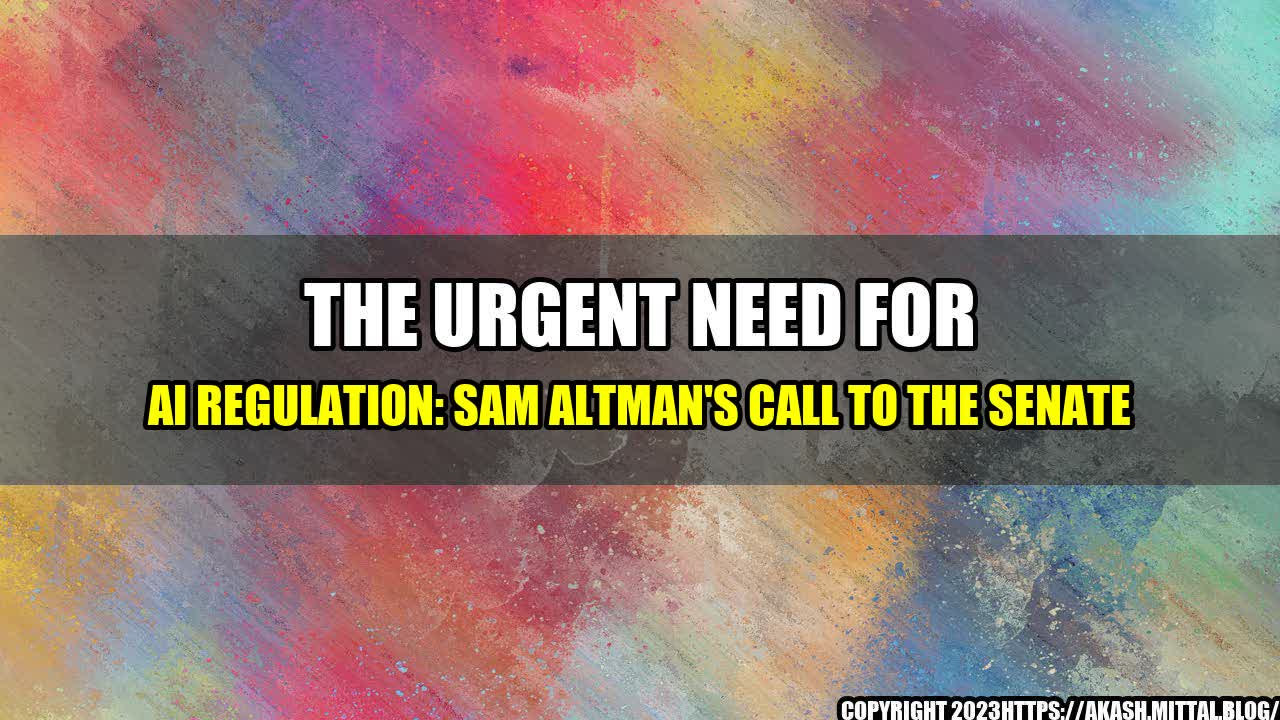
Sam Altman, the CEO of OpenAI and the co-founder of Loopt, has recently urged the Senate to implement regulations for Artificial Intelligence (AI) that would prioritize safety, fairness, and accountability. His argument is not unfounded. In fact, it is becoming clearer that without regulations, AI applications and technologies could have serious, even deadly consequences.
AI has the potential to revolutionize a variety of industries, including transportation and healthcare. However, as AI becomes more prevalent and more advanced, we are seeing more examples of how it can go wrong.
Take, for example, the case of the self-driving Uber car that struck and killed a pedestrian in Tempe, Arizona in 2018. According to the National Transportation Safety Board, the Uber car failed to recognize the pedestrian and was not programmed to brake for a pedestrian crossing a street outside of a crosswalk. If there were regulations on the development and testing of self-driving cars, this tragedy might have been prevented.
Similarly, the use of AI in social media has had unintended, negative consequences. The Cambridge Analytica scandal revealed how AI-powered algorithms could be used to manipulate and influence public opinion, leading to political upheavals and civil unrest. With regulations in place, we might be able to prevent another Cambridge-Analytica-style incident.
AI applications in healthcare also have the potential to cause harm. While AI has the ability to improve disease diagnosis and treatment, it cannot be trusted to replace doctors entirely. Mistakes made by AI-powered machines could have catastrophic effects on patient health and safety if unchecked. Regulations must be implemented to ensure the safe usage of AI systems in healthcare.
AI has come a long way in recent years. According to Adobe Analytics data, online sales made the records of $9.2 billion on Black Friday, of which a large chunk of it can be attributed to AI technology. While these advancements have led to exciting developments and innovations, they have also given rise to concerns over the ethical and moral implications of AI usage.
The time for AI regulation is now. As AI technology continues to evolve and become more advanced, the potential risks become greater. Without governmental oversight, AI could cause widespread economic and social damage. In addition, there is increasing concern about the threat of weaponized AI, which has the potential to cause severe global security implications.
Regulation is not about stopping development or progress altogether. Rather, it is about approaching AI development with a sense of responsibility and accountability.
Sam Altman has proposed several measures that the Senate could implement to regulate AI. These measures would prioritize safety, fairness, and accountability.
These proposals prioritize best practices when developing AI and would ensure that companies are aware of the potential consequences of AI-driven machines and are accountable for their actions. Implementing these regulations would create safer implementation of AI and help mitigate any unintended harm.
AI has become an integral part of our daily lives and is continuing to grow and evolve. While AI innovations can lead to wonderful benefits, it also poses ethical and moral concerns. Without proper regulations, AI can have serious negative consequences. Therefore, it is vital to implement regulations that prioritize safety, fairness, and accountability. Sam Altman's proposals are a great starting point for the Senate to begin the process of creating legal frameworks to govern AI usage responsibly.
References:
Curated by Team Akash.Mittal.Blog
Share on Twitter Share on LinkedIn